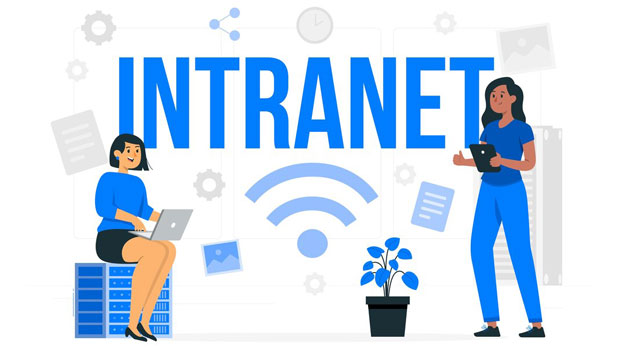The stability of a wireless residential IP address is crucial for various online activities, especially when it comes to applications like streaming, gaming, or remote work. In this article, we will discuss the methods for evaluating the connection stability of wireless residential IP addresses. The evaluation process involves several steps, including signal strength testing, latency measurement, packet loss assessment, and troubleshooting techniques. Understanding how to properly assess the stability of your wireless connection can help ensure a smoother internet experience, reducing frustration and enhancing productivity. Let’s dive into the specific methods and tools used to evaluate this critical aspect of internet connectivity. What is Wireless Residential IP Address and Why is Stability Important?A wireless residential IP address refers to the unique identifier assigned to a device or network within a home network that connects to the internet via wireless means, such as Wi-Fi. It is used to communicate with the internet service provider (ISP) and allows data to be exchanged between the internet and the device. Stability in this context means the consistency of the network connection over time, with minimal disruptions, high throughput, and reliable data transfer.For individuals and businesses alike, an unstable IP address connection can cause numerous issues, including slow download speeds, dropped calls, interrupted video streams, or even complete disconnections from online services. Therefore, evaluating the connection stability is essential to maintain seamless online activities.Key Factors Affecting Wireless Residential IP Address StabilityThere are multiple factors that can influence the stability of a wireless residential IP address. Understanding these factors is essential when evaluating connection quality.1. Signal StrengthSignal strength is one of the primary factors determining the stability of your wireless connection. A weak signal can lead to dropped connections, slower speeds, and increased latency. The strength of the wireless signal is affected by several elements:- Distance from the Router: The farther a device is from the router, the weaker the signal.- Obstacles and Interference: Walls, floors, furniture, and even household appliances can block or interfere with the signal.- Router Quality and Placement: The performance of your router, including its age and technology, impacts the signal strength. The placement of the router in the home also matters, as signals should ideally be unobstructed.To measure signal strength, you can use network diagnostic tools that display the signal’s decibel (dBm) value. A signal strength between -30 dBm and -70 dBm is considered ideal, with anything lower indicating a weak connection.2. Latency and PingLatency, also known as "ping," is the time it takes for data to travel from your device to a server and back. High latency can make real-time applications, such as gaming or video conferencing, unresponsive. Measuring latency involves sending packets from your device to a server and measuring the round-trip time.Ping values are usually measured in milliseconds (ms). A ping under 30 ms is considered excellent, while values over 100 ms may indicate a problematic connection.To measure latency, you can use tools such as “ping” commands on your operating system or specialized network analysis software. Lower ping results indicate better connection stability, while higher values indicate issues such as network congestion or interference.3. Packet LossPacket loss occurs when data packets traveling across a network fail to reach their destination. It results in delays, buffering, or complete disconnections in communication. Packet loss can be caused by poor signal strength, network congestion, or hardware malfunctions.To assess packet loss, you can use network monitoring tools that track the number of packets successfully transmitted versus those lost during transmission. A packet loss rate of less than 1% is considered good, while rates higher than 5% can severely affect connection performance.Methods to Test Wireless Residential IP Address StabilityNow that we’ve discussed the factors that affect connection stability, let’s look at the methods for testing and evaluating the connection quality of a wireless residential IP address.1. Speed TestA speed test provides a comprehensive evaluation of the connection’s download and upload speeds. Speed is directly linked to the stability of a wireless IP address, as high-speed internet generally indicates a stable connection. You can use various online tools to run speed tests, including mobile apps and web-based platforms.Ensure that the test is done at different times of the day to account for possible fluctuations in network traffic. If you notice significant drops in speed, it may be an indication of instability.2. Continuous MonitoringFor long-term evaluation, it’s beneficial to set up continuous monitoring. This involves tracking network performance over an extended period, recording fluctuations in speed, latency, and packet loss. Continuous monitoring helps identify patterns and potential issues that may not be noticeable during short-term testing.Several network monitoring tools and software allow users to continuously track performance and send alerts in case of anomalies, ensuring quick action when needed.3. TracerouteTraceroute is a useful tool for mapping the route that data packets take to reach their destination. It displays the intermediate points (hops) between your device and the server, providing insights into where delays or disruptions occur in the network.By analyzing traceroute results, you can pinpoint the specific location where packet loss or high latency occurs, allowing you to troubleshoot more effectively.Troubleshooting and Improving Wireless Residential IP Address StabilityIf you have identified stability issues with your wireless IP address, there are several steps you can take to resolve them.1. Reposition the RouterOne of the simplest ways to improve wireless signal strength is to reposition your router. Place it in a central location with minimal obstructions to ensure the signal can reach all devices in the home. Avoid placing the router near large metal objects, microwaves, or thick walls, as these can interfere with the signal.2. Upgrade HardwareOlder routers may not be able to provide the necessary stability for modern internet applications. Upgrading to a newer router with better signal coverage, support for modern wireless standards (such as Wi-Fi 6), and higher throughput can significantly improve your connection stability.3. Optimize Network SettingsYou can also tweak your router’s settings to optimize performance. For instance, switching the wireless channel to a less crowded one or enabling Quality of Service (QoS) to prioritize specific applications (like video streaming or gaming) can help enhance stability.4. Use Wired Connection When PossibleIn cases of persistent instability, switching to a wired Ethernet connection can bypass most wireless interference issues and provide a more reliable connection. This is particularly useful for high-bandwidth applications such as online gaming or streaming high-definition videos.Evaluating the stability of a wireless residential IP address involves testing various aspects of the connection, such as signal strength, latency, and packet loss. By using tools such as speed tests, continuous monitoring, and traceroute, you can identify issues and take corrective measures. Ensuring the stability of your wireless connection is essential for seamless internet experiences, and by following the methods outlined above, you can ensure that your network is always performing at its best.
Sep 15, 2025



































































